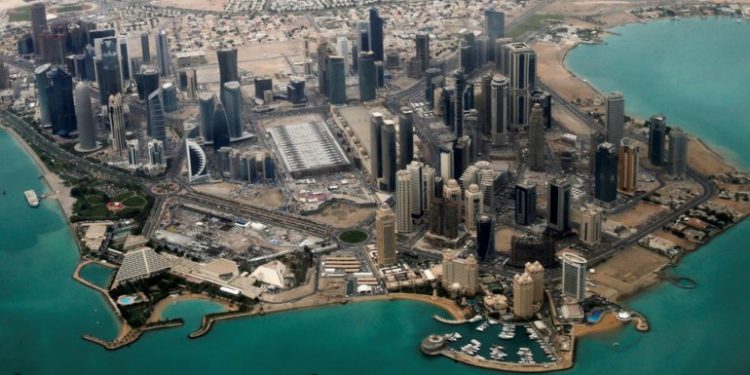Moody’s Investors Service has rated Qatar Aa3 with a Stable Outlook, reaffirming the resilience of Qatari economy in the face of crisis.
Qatar’s credit profile reflects the government’s strong balance sheet, vast hydrocarbon reserves and exceptionally high per capita income. These factors provide significant shock-absorption capacity and mitigate the vulnerability of government revenue to temporary declines in oil prices, such as the one caused by the coronavirus pandemic, as well as the economic and financial risks arising from Qatar’s exposure to regional geopolitical tensions, the global rating agency noted yesterday in its updated forecast on Qatar.
“Given the current market conditions, this is a good rating as other markets in the region have been downgraded. This reaffirms Qatar’s economic resilience”, a market expert told The Peninsula
“The stable outlook reflects our assessment that Qatar’s credit metrics are likely to remain consistent with the Aa3 rating, even as oil prices remain subdued due to depressed global oil demand caused by the coronavirus pandemic,” Moody’s said.
The stable outlook balances fiscal and economic risks stemming from the decline in oil prices with Qatar’s very large fiscal and foreign currency reserve buffers in the form of sovereign wealth fund assets. The stable outlook also takes into account risks associated with the ongoing regional geopolitical tensions, including the diplomatic, economic and financial blockade by some neighboring nations.
The Moody’s said that a sustained and material reduction in external vulnerabilities through a decrease in external debt and a rebuilding of foreign-exchange reserves would likely prompt a further upgrade of the rating of Qatar.
Qatar’s score for economic strength is set at “a1,” above the initial score of “a3,” to reflect the country’s exceptionally high per capita income and very large hydrocarbon reserves. Moody’s scores Qatar’s institutions and governance strength at “a2,” taking into account the country’s strong institutional framework and effectiveness. Qatar’s Worldwide Governance Indicators scores are in line with the Aa-rated median and stronger than those of other GCC countries.
The government’s responses to the blockade imposed in June 2017 demonstrate policy effectiveness and coordination within public-sector entities, as well as a strong institutional capacity to manage crisis.
Qatar’s “a1” fiscal strength is above the initial score of “a3”, taking into account several considerations. First, the relatively high government debt and a relatively high share of foreign-currency debt is mitigated by a credible currency peg to the dollar, backed by the government’s large external assets and the central bank’s foreign reserves.
Moody’s assessment of Qatar’s fiscal strength is also based on the government’s prudent budgeting, which has yielded persistent fiscal surpluses in the past while also softening the negative fiscal impact during the periods of oil price declines.
The Peninsula
14/04/2020






































































